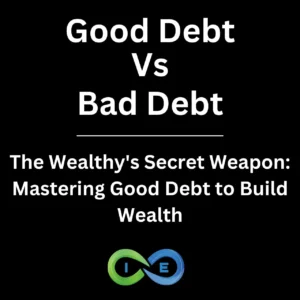IUL vs VUL: A Comprehensive Guide to Indexed Universal Life and Variable Universal Life Insurance
Navigating the world of permanent life insurance can be complex, yet understanding the nuances between different policies is crucial for making informed decisions tailored to your personal and financial goals. In this comprehensive exploration, we delve into the intricacies of Indexed Universal Life (IUL) and Variable Universal Life (VUL) insurance policies—two prominent members of the Universal Life Insurance family that are seeing significant market growth in 2024-2025.
Table of Contents
Current Market Trends in Universal Life Insurance
Latest Market Statistics (2024-2025)
- VUL Growth: Variable Universal Life premiums surged by 56% in Q4 2024, with total annual growth of 27% year-over-year, reaching $2.4 billion in new premiums.
- IUL Impact: Indexed Universal Life premiums grew by 10% in Q4 2024, totaling $3.8 billion for the year, representing 23% of the total U.S. life insurance market.
- 2025 Forecast: VUL sales are expected to increase by 12-16% in 2025, while IUL sales are projected to grow between 2-6%, driven by simplified products with lower face amounts.
Both IUL and VUL products are experiencing significant growth as more Americans seek flexible life insurance solutions that offer both protection and investment opportunities. Let’s explore how these products work and which might be right for your financial strategy.
Universal Life Insurance Policy
Indexed Universal Life (IUL) and Variable Universal Life (VUL) are part of the Universal Life Insurance family of products. Let’s start our discussion by first discussing universal life policies.
Universal life insurance, such as indexed universal life (IUL) and variable universal life (VUL), is a form of permanent life insurance, also known as cash value life insurance. These universal life insurance chassis are designed to provide a lump sum death benefit for your beneficiaries, and also build up cash value over time. Because they are classified as universal life insurance, both types of policies offer flexibility in regard to premium amounts and coverage, and also feature other living benefits that typically accompany cash value life insurance.
The benefits of universal life insurance include:
- Tax-deferred growth of the funds in the policy’s cash value account.
- Ability to use funds from the cash value account to pay premiums.
- Option to take tax-free partial withdrawals from the cash account of your policy (as long as they don’t exceed the amount you have contributed to the policy).
- Option to take tax-free loans from the policy while still earning interest or growth on the remaining cash value
Why Choose Universal Life?
Universal life products have become increasingly popular due to their flexibility and potential for cash value growth. Recent demographic shifts, particularly among Gen X (whose oldest members turn 60 in 2025), are driving demand for life insurance products tailored to retirement planning with tax advantages.
Similarities Between Indexed Universal Life and Variable Universal Life
- Cash value grows tax deferred.
- Option to allocate cash into a fixed account or indexed account
- Tax Free Death Benefit to Beneficiary
- Growing or Fixed Death Benefit Option
- Cash value can be accessed tax-free via loans
- Flexible premium payments
- Flexible death benefit that can be lowered to lower costs
THE ULTIMATE FREE DOWNLOAD
The Estate Planners Tactical Guide
Essential Legal Protection for Achievers

Key Differences Between Indexed Universal Life and Variable Universal Life
While indexed universal life insurance policies and variable universal life insurance policies share similarities as variants of universal life insurance, there are some critical differences between the two policy types. The major difference between the two is the method used to determine the cash value return on the funds held in the cash account.
IUL Characteristics
- Returns linked to index performance
- Downside protection with 0% floor
- Upside limited by caps/participation rates
- Lower fees than VUL
- More conservative growth approach
- Less volatile cash value
VUL Characteristics
- Direct investment in securities
- No downside protection
- Unlimited upside potential
- Higher fees for active management
- More aggressive growth approach
- More volatile cash value
Subaccounts
- IUL insurance offers subaccounts that track the performance of stock market indexes without investing directly in the securities which make up those indexes.
- IUL index-linked subaccounts found in enable the policyholder to share in the upside performance of the stock market, subject to caps and participation rates, while shielding policyholders (via the floor) from downside risk if the market declines.
- VUL subaccounts directly invest in such securities, similar to mutual funds. Variable universal life insurance uses active management of subaccount investments, resulting in higher fees than IUL.
- VUL subaccounts have no caps or participation rates, and there is no floor, allowing for maxmimum participation, along with maximum risk.
IUL Participation Rate, Cap, and Floor
Indexed universal life insurance policies feature participation rates and ceilings, or caps, on the amount a subaccount can earn in any one year. For instance, if a subaccount has a 60% participation rate and the stock market index tracked by the subaccount rises 15% in a year, you would receive a 9% return (60% of 15% = 9%). If the policy had a cap of 8%, meaning that the subaccount couldn’t rise more than 8% in any year, your return would be 8% rather than 9%.
The floor rate is the minimum amount a subaccount can earn in any one year, and is generally no less than 0%, meaning that if the market index tracked by the subaccount declines in any year, the subaccount will not lose money. Some floor rates are set at a positive interest rate, such as 1 or 2%.
Why Floor Rates Matter
The 0% floor in IUL policies prevents your cash value from declining during market downturns. This preservation of principal is why many risk-averse investors are drawn to IUL despite the cap on returns. During the market volatility of 2022-2024, IUL policyholders saw their cash values preserved while many direct market investments experienced significant losses.
IUL Options vs VUL Securities
IUL Options
Life insurance companies offering IUL policies fund the stock market-linked returns in their subaccounts by purchasing options on the index these accounts track with a portion of the funds invested in them.
This enables the insurers to generate the money needed to credit the accounts with the proportion of growth in the linked index that the subaccount is entitled to receive, taking into account the relevant participation and cap rates.
The remainder of the subaccount value is typically invested in income producing investments to generate enough income to meet the floor rate offered by the subaccount and to pay other expenses associated with the indexed universal life insurance policy.
VUL Securities
By contrast, variable universal life insurance subaccounts, rather than offering returns linked to a particular index, are invested in underlying investment options, mainly stocks and bonds, in accordance with the investment objective of the subaccount.
Thus, the return on these accounts is not limited by cap rates or participation rates and will vary according to the performance of the underlying investments selected. This means that while the upside is not limited, neither is the downside.
As a result, a variable universal life insurance poicy offers the potential for greater returns from its subaccount than IUL, along with the potential to suffer losses if the subaccount you have invested in performs poorly.
As mentioned earlier, the active portfolio management associated with VUL subaccounts also means that these policies typically feature higher fees than IUL.
| Feature | Variable Universal Life (VUL) | Indexed Universal Life (IUL) |
|---|---|---|
| Investment Approach | Direct investment in equities and bonds | Cash value tied to stock market indices |
| Risk Profile | High risk; no caps or floors on returns | Lower risk; caps on gains and floors on losses |
| Growth Potential | Higher returns possible but exposed to losses | Moderate growth with downside protection |
| Fees | Higher due to active management of investments | Lower but includes administrative costs |
| 2024 Premium Growth | 56% growth in Q4, 27% annually | 10% growth in Q4, 23% market share |
IUL vs VUL Risk Considerations
VUL Higher Risk
Given the greater risk associated with VUL subaccount investments, and their higher fees, these policies are more appropriate for purchasers who are comfortable with higher levels of risk.
Variable universal life insurance buyers typically are willing to accept the risk of losing capital in their cash value account for the potential reward of greater growth involved in investing your VUL subaccounts directly in equity-oriented securities.
IUL Lower Risk
IUL buyers, while desiring the opportunity to experience some of the stock market’s upside, want to avoid risking taking losses on the value of their cash value account. Thus, indexed universal life insurance is more appropriate for those with a less aggressive risk tolerance profile, who understand the value of not losing money in a compound interest account.
Recent Policyholder Preferences (2024-2025)
According to recent market data, VUL policies are attracting individuals seeking higher returns through direct investments in equities and bonds, despite greater risk exposure. Meanwhile, IUL continues to be favored by more risk-averse buyers due to its downside protection via floors and caps, ensuring cash value stability during market downturns.
Cash Value Losses Equal Higher Risk
With cash value life insurance, the risk of loss in your cash value account is relevant not only in regard to reducing the amount of cash you have available to borrow against via a policy loan or partial surrender of the policy, but also to maintaining adequate cash in the policy to pay the monthly premiums.
If you are using your policy’s cash value account to pay premiums, and the value declines to the point where this is no longer possible, your universal life insurance policy will lapse unless you can come up with the additional funds to make the payments.
Private Placement Life Insurance
Variable universal life is typically for those who are looking for private placement life insurance and have the income levels necessary to maintain the policy. This is because, if the subaccounts in the cash value portion of your policy decline, it can impede your ability to use these funds to pay premiums. And this may result in cancellation of the policy, causing you to lose the insurance coverage.
Additionally, if you wanted to purchase a life insurance policy at some point after the policy lapsed you would have to go through the life insurance medical exam process again. If you have had any health incidents between the time you initially purchased the variable universal life policy and the time you purchased a new life insurance policy after the lapse of the first one, it could result in significantly higher premiums or being denied coverage altogether.
VUL Premiums
Purchasing a VUL policy makes more sense if you are confident that you can make premium payments on variable universal life throughout your lifetime, or if you have the ability to overfund the life insurance policy by making additional payments into the account so it has a sizable buffer of extra cash in case the subaccounts decline due to a downturn in the stock market.
Even if these conditions apply, you should be careful to also take into account your risk tolerance before deciding if a variable universal life insurance policy if right for you. The greater volatility in the performance of VUL subaccounts and the resulting increased potential of losing principal means that these policies are most appropriate for those who are comfortable with the fluctuation associated with stock investments.
For those who do not want life insurance as an investment, IUL policies represent a less risky way to participate in some portion of the potential gains from the stock market. Because these policies offer downside protection from any stock market decline, they are popular with risk averse investors who still want to take advantage of the opportunity to benefit from the growth potential of stocks.
VUL vs IUL Video
For more, check out our video that covers the differences and similarities between VUL vs IUL policies.
Whole Life Insurance
Finally, a brief word on VUL vs IUL vs Whole life insurance. The primary benefit of whole life versus universal life is that whole life offers guarantees, including guaranteed fixed premiums, guaranteed cash value growth, and guaranteed death benefit.
The primary benefit of whole life is that the premium is fixed for the life of the policy. While guaranteed universal life can offer similar premium guarantees, IUL and VUL policies do not provide the same fixed premium guarantee as whole life insurance. Consequently, anyone looking for a guaranteed fixed premium for the life of the policy should consider whole life as a viable option.
Who Should Choose Each Type?
Ideal for IUL
- More conservative investors
- Those seeking downside protection
- People planning for retirement who can’t afford losses
- Individuals who want simpler investment options
- Those who prioritize stable, predictable growth
- Anyone uncomfortable with market volatility
Ideal for VUL
- More aggressive investors
- Those comfortable with market fluctuations
- Individuals seeking maximum growth potential
- People with financial resources to cover premium shortfalls
- Those who want direct control over investments
- High-income earners seeking tax advantages
Need Help Choosing Between IUL and VUL?
Let our experts analyze your financial goals and risk tolerance to find the perfect universal life policy for your needs.
We’ll compare the latest options from top-rated insurers and create a personalized strategy just for you.
No obligation • Expert advice • Tailored to your financial goals
Conclusion
In conclusion, your choice between Indexed Universal Life (IUL) and Variable Universal Life (VUL) insurance should reflect your personal financial goals, your comfort with risk, and your interest in managing the investment aspect of your policy. If you prefer a safeguarded approach with protection against market downturns and predefined returns, IUL might suit you by offering a balance between growth potential and financial security. On the other hand, if you’re more inclined to embrace higher risk for the chance of greater returns, and you’re keen on having a direct hand in investment decisions, VUL could be the right fit, allowing you more control over your policy’s cash value investments despite the inherent market volatility.
There is no one size fits all life insurance company or policy. Each individual’s goals, objectives and needs must be considered to know what the best route to take will be. At I&E, we analyze the total picture of each individual to help find the best path to financial freedom and independence along your journey. Give us a call today for a complimentary strategy session to see just what we can do for you.
THE ULTIMATE FREE DOWNLOAD
The Estate Planners Tactical Guide
Essential Legal Protection for Achievers







8 comments
Eric
I like to learn about the iul
Thanks
Eric
919.946.1515
Steven Gibbs
Hello Eric, we forwarded your request to our IUL expert Jason Herring and you can also reach out to him to request a call at jason@insuranceandestates.com.
Best, Steve Gibbs for I&E
Steven Gibbs is a licensed insurance agent, and the following agent
license numbers of Steven Gibbs are provided as required by state law:
Resident License; AZ agent #17508301,
Non-resident Licenses: TX agent #2273189, CA agent #0K10610,
LA agent #769583, MA agent #2049963, MN agent #40563357,
UT agent #655544.
Lloyd
I’m 39 and I have a 15 year old son I want to purchase him some insurance that he can use for the future when I’m not around what kind of policy should I be looking into?
SJG
Hello Lloyd, there are various options to consider whcn talking about taking care of kids. A great next step would be connect with our expert Jason Herring who is very experienced with all types of policies. You can request a call by emailing him at jason@insuranceandestates.com.
Best, Steve Gibbs
Resident License; AZ agent #17508301,
Non-resident Licenses: TX agent #2273189, CA agent #0K10610,
LA agent #769583, MA agent #2049963, MN agent #40563357,
UT agent #655544.
Henry Rosas
I have come across good information about life insurance but I mostly see answers regarding older people 40+. I’m 23 y/o, in good health, and thinking of putting down 6k per year, and I’m still not sure which type of UL I should take. I’m inclining more toward VUL since I’m younger and I can take the ups and downs of the market. what do you recommend?
SJG
Hi Henry, the best option for you to get a clear example of how a policy can work for you is to email our IUL VUL expert Jason Herring at request a call at jason@insuranceandestates.com.
Best, I&E Pro Team
Ralph Weber
I have a client in her 50’s. She is very conservative in her investments, and does not have high risk tolerance. She likes the idea of UL building cash value then taking out income in 15 years through policy loans. She was told that VUL was the best policy and that it would guarantee $70,000 of annual income. I prefer IUL, but even then, I never guarantee income. Personally I think VUL is the wrong product for someone in their 50’s who is risk averse. What are your thoughts?
Insurance&Estates
Hello Ralph, I agree about the VUL but actually prefer and generally recommend traditional whole life with paid up additions rather than the IUL as the former often outperforms the latter. If you’d like to learn more, connect with Barry at barry@insuranceandestates.com.
Best, Steve Gibbs, for I&E